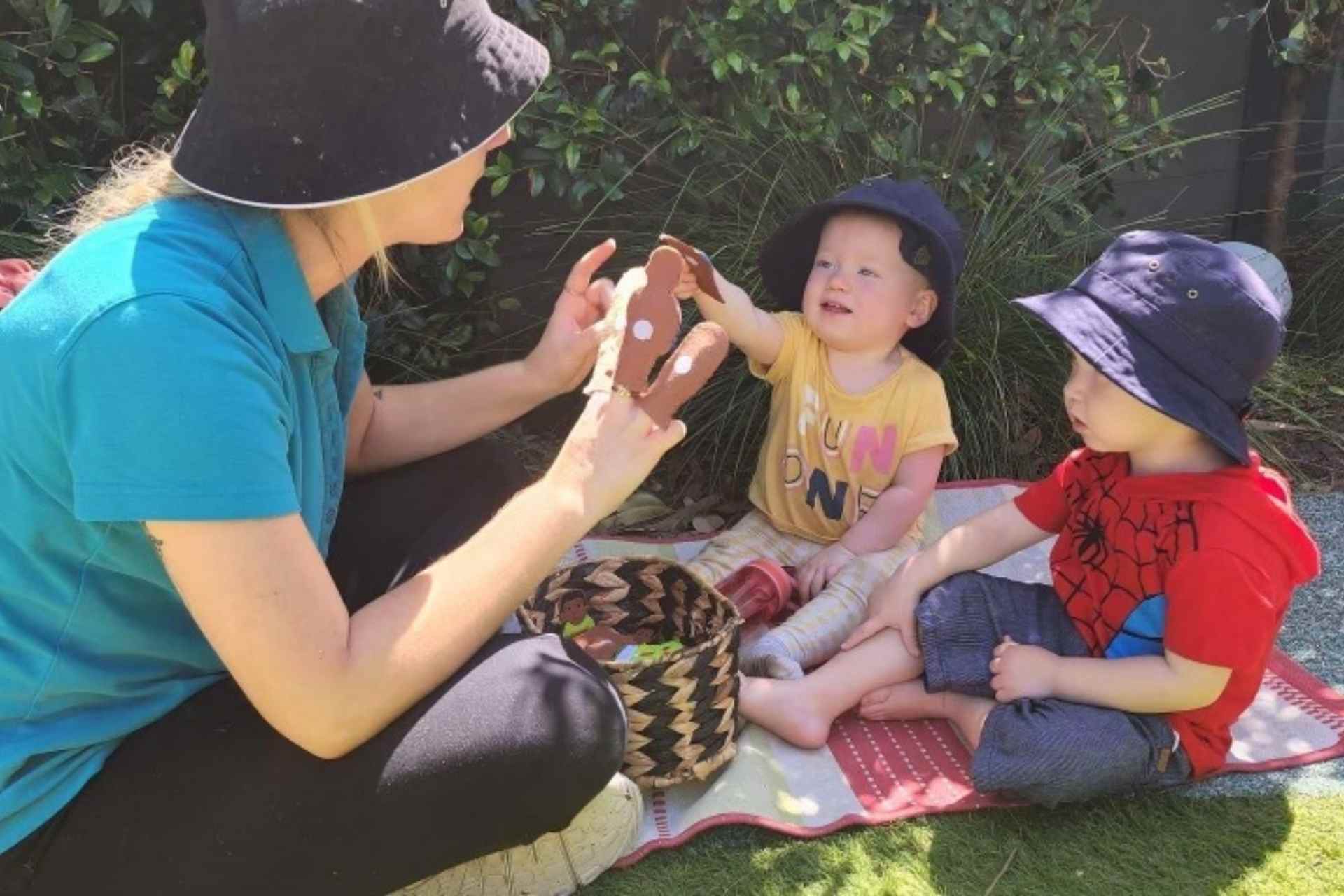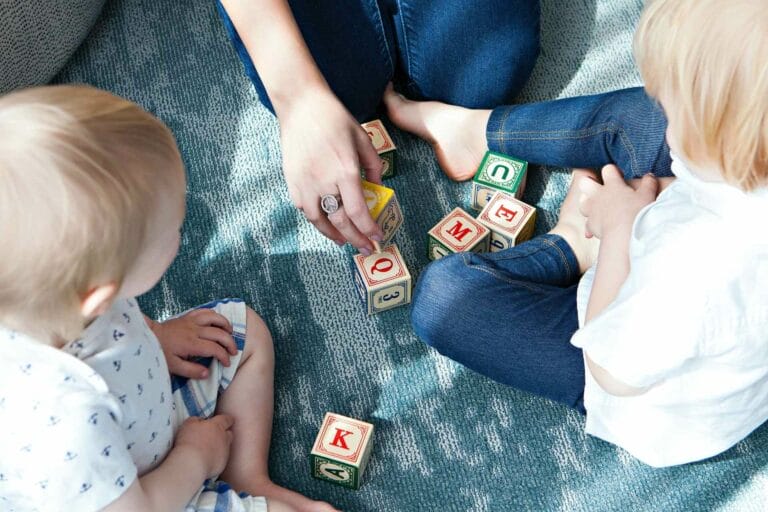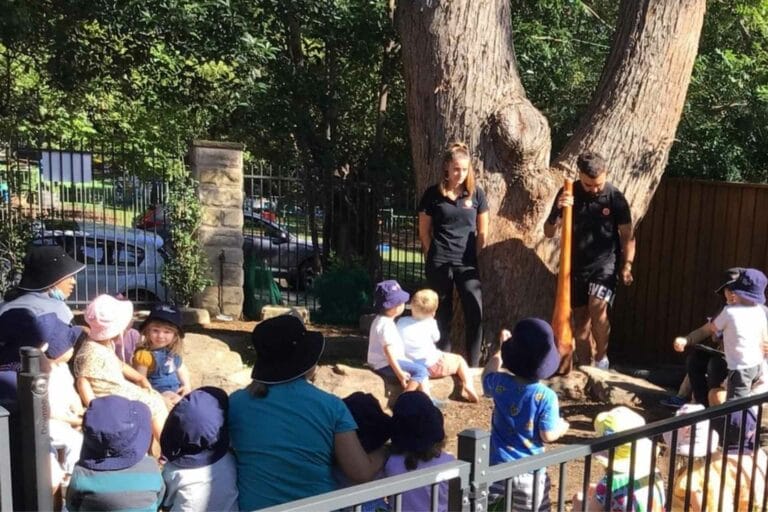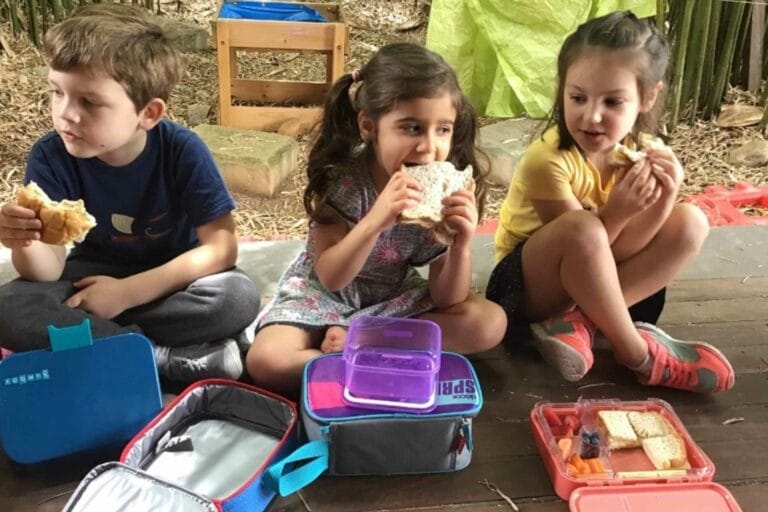Numeracy in the early years

Did you know that early numeracy and mathematical skill acquisition in young children is an indicator of later academic success? (Chen & Bleiker, 2013; Vogt et. al, 2018). Not only are numeracy skills needed for school but more importantly for dealing with everyday life situations.
What is numeracy?
Numeracy is the ability to recognise and apply mathematical concepts purposefully in a wide range of situations. It involves children using new mathematical understandings by engaging in problem-solving. Numeracy in the early years “broadly includes understandings about numbers, patterns, measurement, time, spatial awareness and chance, and data, as well as mathematical thinking, reasoning and counting” (EYLF V2.0, 2022, p. 67).
How do we support numeracy at SEEC?
In our Sydney Early Education Centres, numeracy is an integral component of our ‘Learning for Life’ curriculum, which is guided by current early childhood research and evidence-based practice. We encourage children’s positive attitudes and competencies in numeracy through fun and challenging play-based learning experiences. Through play, children are “exploring and investigating objects and abstract meanings and engage in many different kinds of thinking processes” (Macmillan, 2012, p. 22). Our educators’ interactions and intentional teaching support and inspire each child’s natural curiosities and dispositions to think and learn mathematically.

Let’s take a closer look at numbers and counting
Did you know that babies are born with a primitive number sense (Early Childhood Australia, 2015) and that by the age of 4 months, they are developing the skills needed for counting such as one-to-one correspondence? Babies and young children are amazing learners, however mathematical skills and concepts such as counting and nominal numbers need to be explored in a natural and enjoyable way.
5 counting principles to help support your child to learn to count
The first 3 principles are essential for building a strong and effective counting foundation. The first two principles go ‘hand-in-hand’ together.
Stable order principle
- The child knows the number names in the correct sequential order
- The child understands that the numbers are always said in the same order
One-to-one correspondence principle
- The child understands that when counting objects in a group each object is counted once and only once.
- The child assigns one counting number name to each object.

Cardinality principle
- The child understands that the number name allocated to the last object in the group represents ‘how many’ objects are in that group.

Abstraction principle
- The child understands that anything can be counted not just physical objects, eg: sounds or imaginary objects.
- The child understands that objects in a set can be different, eg: shapes, colours, sizes.
Order-irrelevance principle
- The child understands that the order of the objects being counted is irrelevant, eg: left-to-right, right-to-left, or in a random fashion. (Gelman & Galistel, 1978). You can explore the counting principles further in this video:

Ideas for building your child’s numeracy skills at home
Make numeracy in early learning a fun part of your everyday life and leisure time, for example:
- Go for a nature walk collecting a mixture of leaves, sticks, seed pods, and other natural items. These can be used for sorting, classifying, counting, measurement, estimating, data collection, and so forth.
- Cooking together is a great way for your child to learn concepts such as measuring, counting, fractions, adding and sequencing. Use language such as half, quarter, full empty, teaspoons and litres.
- Play games that explore positional concepts and get your child to go under, over, through, behind and above.
- Sing songs or play music at different speeds. Your child can clap or dance to the music to emphasise the different speeds.
- Sing songs or say rhymes together that support numeracy skills, such as:
- Counting forward, eg: “Here is the Beehive”
- Counting backwards, eg: “5 Little Speckled Frogs”
- Spatial awareness & size, eg: “We’re Going on a Bear Hunt”.

- When going for a drive with your child identify together different shapes, numbers, the tallest building, the position of objects, etc.
- Count each stair while walking upstairs together.
- Play games together such as board games, hopscotch, or hide and seek (involving measuring time by counting or a digital timer).
- Race toy cars together talking about which car came first, second or third.
- Play shops together, involving maths in such ways as counting money, making credit cards with numbers on them, weighing the food, and ordering the food by height (shortest to tallest) or by cost (least expensive to most expensive).
- Read books together involving mathematical concepts. For example:
References and further reading:
https://raisingchildren.net.au/babies/play-learning/learning-ideas/early-numeracy
Chen, Z., & Bleiker, C. (2013). Effects of Number-Way Curriculum on Pre-Schoolers’ Mathematical Learning for Low Socioeconomic Status Children.
Department of Education, Employment and Workplace Relations, (DEEWR). (2022). Belonging, Being and Becoming. The Early Years Learning Framework for Australia V2.0 . Barton ACT: Author.
Macmillan, A. (2012). Numeracy in early childhood: Shared contexts for teaching & learning (Vol. 2). Oxford University Press, USA.
Vogt, F., Hauser, B., Stebler, R., Rechsteiner, K., & Urech, C. (2018). Learning through play–pedagogy and learning outcomes in early childhood mathematics. European Early Childhood Education Research Journal, 26(4), 589-603.
We hope this empowers you to make numeracy an everyday part of your child’s life, through play, song and everyday adventures. Want to know more about our service? You can book a tour or send us a message or explore our amazing purpose built early education centres.

Written By
Margaret Wilson, SEEC’s Manager









